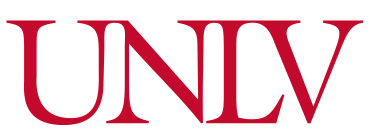Newswise — When people think of Pfizer, their minds tend to go straight to COVID-19 vaccines. But in a lab tucked deep within UNLV’s chemistry building, there’s a student researcher working with the company to cure the world of another debilitating illness — cancer.
Citlally Lopez is on a quest to break down cultural, gender, and language barriers on her way to becoming a physician-scientist who performs her own House, M.D.-version magic, unlocking cures for diseases while making medical care accessible to underserved populations.
A first-generation Mexican American junior majoring in biological sciences, Lopez is the first recipient in UNLV history of the 2021-22 Pfizer La Jolla Academic Industrial Relations Diversity Research Fellowship in Chemistry. The prestigious $20,000 award aims to diversify a field long dominated by white males. Lopez’s project, under the direction of noted organic chemist and UNLV College of Sciences professor Jun Yong Kang, focuses on creating a drug that stops the growth of cancer cells.
Lopez’s days are spent peering into the window of a lab fume hood as she carefully mixes chemical compounds to produce from scratch CBB3001 — a molecule that has shown early promise in binding to cancer cells and halting their growth — then adding and removing various elements to create a new, even more effective anti-cancer agent. CBB3001 is thought to be especially potent in the fight against embryonic cancer and tumors of hair, muscle, bone, and reproductive gland tissues.
“I don’t only want to be a doctor,” Lopez said. “I want to be actively searching for the cure.”
It’s a big dream for the daughter of immigrants from small, secluded towns in Mexico, where “machismo” culture opines that women are better suited to housework than educational coursework. She is one of two women from her household pioneering a path in a field dominated by people who look nothing like them: her older sister, Ruby, is currently in medical school.
Lopez felt the first twinge of excitement about science in elementary school while reading a nonfiction short story about people with careers in veterinary science and medicine. It was in a Valley High School classroom that a fictional family’s pain surrounding a novel character’s losing battle with Duchenne muscular dystrophy piqued her passion to help patients with incurable or rare diseases. To test her hypothesis, she began volunteering in the emergency room at Sunrise Children’s Hospital, which only solidified her plans.
“I volunteer in a hospital with mostly Spanish speakers, and it’s a struggle sometimes because some doctors are unable to really connect to the patients because there’s a language barrier,” said Lopez, who often helps translate. “I see a gap and I want to show the community what’s possible.”
She added: “It makes a huge impact for patients to have someone there who understands. And it’s sad to see them in pain, connected to tubes. If you could find that one cure, it could make a whole world of difference.”
To help get there, Lopez dove headfirst into scientific research the summer before she officially enrolled as a UNLV freshman. She worked in several labs before joining Prof. Kang’s research team in summer 2021. Kang said Lopez quickly became a top student, never missing a day of class and maintaining a 4.0 GPA while rapidly picking up research skills faster than any student he’d encountered in nearly a decade at UNLV.
“From that moment, I knew Citlally was really motivated. She demonstrated that she could do high-caliber work,” said Kang, adding that awards like the Pfizer fellowship are critical in attracting young minds to the industry who will drive scientific progress. “We have different ideas and perspectives in labs all across UNLV. That’s how diversity — the culture, thinking — helps develop ideas and technologies and create something new.”
Lopez is working with Kang to complete a report that she will submit to Pfizer in May. In August, she will travel to La Jolla to present her findings. She views the cancer research project as a building block that will help her one day synthesize cures for other diseases, like Duchenne muscular dystrophy.
“I vowed to myself that I would fervently pursue research in spite of all obstacles that were to come, and they did come,” she said. “Pfizer offers individuals of my community the chance to persevere and prevail in spite of one’s background.”
Viewing herself as a “late bloomer” on the science journey compared to her peers, Lopez advises other aspiring scientists to “stick with it."
“There’s a quote from Mulan that really resonates with me: ‘the flower that blooms in adversity is the most rare and beautiful of all’."
MEDIA CONTACT
Register for reporter access to contact detailsArticle Multimedia
Credit: Josh Hawkins/UNLV Photo Services
Caption: Citlally Lopez, an undergraduate student in UNLV professor Jun Yong Kang's synthetic organic chemistry laboratory, has been awarded a $20,000 Pfizer Diversity Research Fellowship in Chemistry to support her research into medicinal drugs to stop the growth of cancer cells.
Credit: Josh Hawkins/UNLV Photo Services
Caption: Citlally Lopez, an undergraduate student in UNLV professor Jun Yong Kang's synthetic organic chemistry laboratory, has been awarded a $20,000 Pfizer Diversity Research Fellowship in Chemistry to support her research into medicinal drugs to stop the growth of cancer cells.
